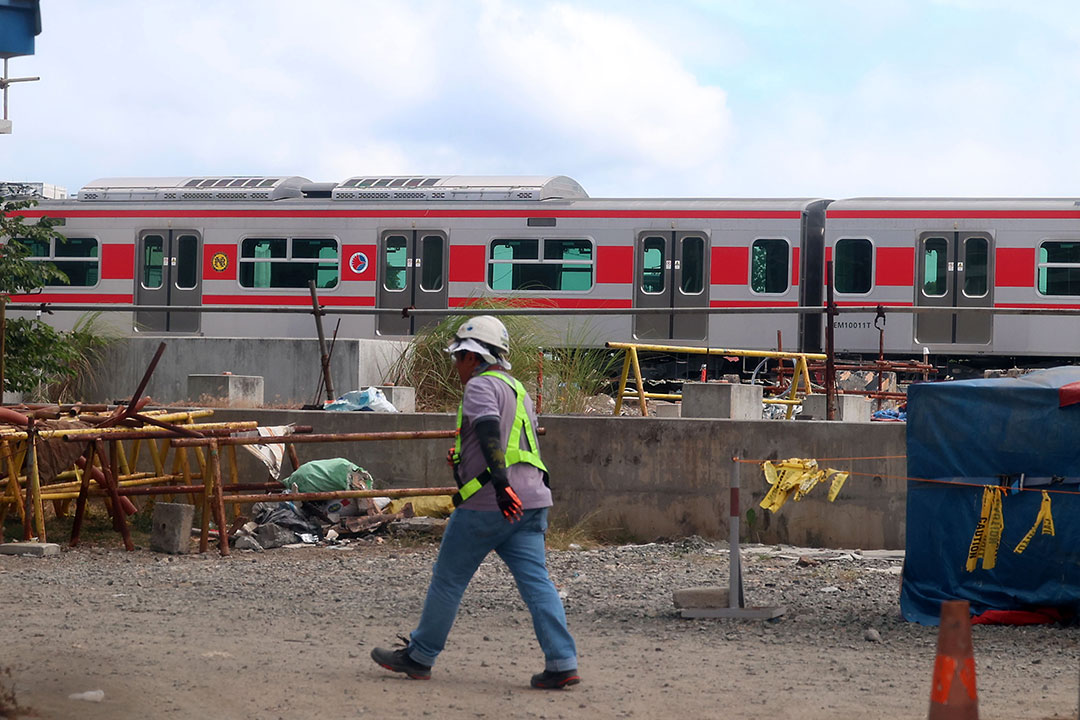DEPDev: 52 flagship projects to be completed by 2028

By Katherine K. Chan
AT LEAST 52 infrastructure flagship projects (IFPs) of the government are set for completion by 2028, the Department of Economy, Planning, and Development (DEPDev) said.
At a briefing at the House of Representatives on Tuesday, DEPDev Assistant Secretary Roderick M. Planta said 52 of the 207 total flagship infrastructure projects and programs will be done within President Ferdinand R. Marcos, Jr.’s administration.
“Fifty-two will be completed within the (current) administration, by 2028. There are 60, but eight of those are studies and 52 are the actual projects,” he said.
Of the 52, 23 projects are on schedule, while 29 are delayed by at least two months, the DEPDev said.
Among those with delayed projects are the departments of Agriculture, Information and Communications Technology, Transportation, and Public Works and Highways.
The Local Water Utilities Administration, Metropolitan Waterworks and Sewerage System, National Irrigation Administration, Philippine Statistics Authority, University of the Philippines and Toll Regulatory Board also have delays in implementing some projects.
Data from the DEPDev showed 32 IFPs that are supposed to be completed by 2028 are under the physical connectivity sector, while eight projects involve water resources. Four projects are each under the digital connectivity and health sectors, while three are for agriculture and one for power and energy.
“All department secretaries are asked for their recommendations on what should be added to the new list,” Mr. Planta said in Filipino.
“The same criteria apply — it should be game-changing for the Philippines. In a way, these are big-ticket items in the sense that they have a significant impact on the community,” he added.
Twenty-one of the IFPs, worth around P1 billion in total, are in the National Capital Region, Central Luzon and Calabarzon.
The Economy department said issues with site conditions or availability, contractors and consultants, budget constraints, procurement and legal policies have been hindering the projects’ progress.
To address these issues, agencies have been implementing measures such as simplifying processes to ease site access and right-of-way acquisition, establishing performance monitoring systems, enhancing procurement planning, and addressing legal issues.
Last year, Mr. Marcos signed Executive Order No. 59 which slashed the number of IFP-licensing agencies to 12-18 from 30 to streamline the process of acquiring permits for IFPs.
The DEPDev also launched an IFP monitoring and reporting system and an IFP dashboard designed to track the progress of each project.
Meanwhile, DEPDev reported that only seven of the 207 IFPs have been completed as of June.
These completed projects are the Samar Pacific Coastal Road, the integrated disaster risk reduction and climate change adaptation measures in low-lying areas of Pampanga Bay, the flood risk improvement and management for Cagayan de Oro River, the Surallah-T’boli-San Jose Road, the third phase of the Arterial Road Bypass (Plaridel Bypass), the Panguil Bay Bridge and the Pasig-Marikina River channel improvement.
In the 2026 National Expenditure Program, P52.08 billion was allocated for the 52 IFPs. This represents 33.14% of the P157.2-billion budget required for the programs.
The government has set a total of P1.558 trillion for its infrastructure program next year.
Last month, the government said it will prioritize 54 flagship projects next year, including the Bataan-Cavite Interlink Bridge, Laguna Lakeshore Road Network and phase four of the Pasig-Marikina River Channel Improvement Program.
According to the DEPDev, 140 IFPs are seen to be completed beyond 2028.
COMMUTER RAILWAY
Meanwhile, less than half or 38.87% of the completion target of the North-South Commuter Railway (NSCR) System has been achieved to date, Mr. Planta said.
“Based on the information provided to us by the DoTr (Department of Transportation), the NSCR (completion progress) is at 38.87% as of the second quarter of 2025,” he said.
This is well behind the 87% initial target set for the project.
“Our (NSCR) project is ongoing. The connection from West Valenzuela to Malolos will be completed by 2027,” Department of Transportation (DoTr) Assistant Secretary Manuel G. Cabochan III added.
Earlier this year, the DoTr said its Japanese partners estimated that the NSCR will be delayed by four years.
Transport Secretary Vivencio “Vince” B. Dizon had said that they aim to make the Manila-Malolos segment of the project operational by end-2026 or early 2027.
The government allocated P124.1 billion in the 2026 budget for railway system development, P76.1 billion of which is for the NSCR.



